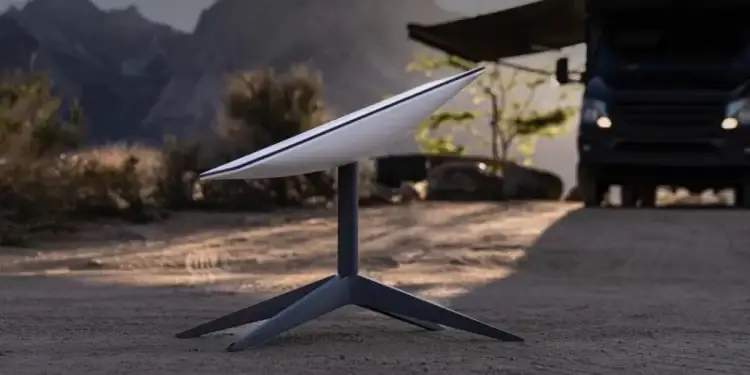Starlink, a satellite internet service provider run by billionaire Elon musk through SpaceX, has formally submitted an application to operate within Zimbabwe. This development has been confirmed through reliable sources within the Postal and Telecommunications Regulatory Authority of Zimbabwe (POTRAZ). Starlink’s initiative marks a significant entry into the Zimbabwean market, which is currently dominated by expensive and unreliable internet services.
Starlink operates by using a constellation of small satellites in low Earth orbit (LEO) to provide broadband internet service. These satellites are deployed at altitudes ranging from 340 km to 1,200 km, significantly lower than traditional geostationary satellites, which allows for reduced latency and increased data transfer speeds.
Each satellite is equipped with multiple high-throughput antennas and uses advanced beamforming and phase array technologies to deliver focused internet signals directly to user terminals on the ground. The system is designed to work in a mesh network, where satellites communicate with each other using laser links, ensuring seamless coverage and data relay around the globe including the remotest of places. User terminals, which are small, easy-to-install dishes, receive the internet signals and connect devices to the web. Starlink’s infrastructure is continuously expanding and improving, aiming to provide ubiquitous, high-speed internet access worldwide.
In preparation for its potential market entry, Starlink had previously communicated to its Zimbabwean users, who had been accessing its services through roaming, about an impending discontinuation of this temporary service. Despite the notifications sent last month, several users reported that their service remained active. However, it is anticipated that Starlink will imminently cease the roaming service as they await the final decision on their licensing application.
The cost of internet services in Zimbabwe ranks among the highest in Southern Africa, compounded by a lack of competition and service quality issues. Currently, Econet Wireless, a major player in the market, has operated without substantial competition, which many believe has contributed to high prices and poor service standards. The introduction of Starlink is expected to disrupt the existing market dynamics, presenting a significant challenge to incumbents like Econet. This competition could lead to enhanced service offerings and better pricing structures, benefiting Zimbabwean consumers overall.
Starlink’s potential entry into Zimbabwe represents a promising development in improving accessibility and affordability of internet services across the region.
For Zimbabwe, the introduction of Starlink could bring several significant benefits:
1. **Improved Internet Accessibility**: Starlink can provide reliable internet access to remote and rural areas where it is economically unfeasible to lay fiber-optic cables or where current services are unreliable.
2. **Increased Internet Speeds**: Starlink’s satellite technology offers high-speed internet, which is a considerable improvement over the slower speeds currently available in many parts of Zimbabwe.
3. **Enhanced Competition**: The presence of a new player like Starlink can drive competition in the local telecommunications market, potentially leading to lower prices and better service quality for consumers.
4. **Economic Opportunities**: Improved internet access can help unlock economic opportunities, supporting everything from education and healthcare to local businesses and startups.










